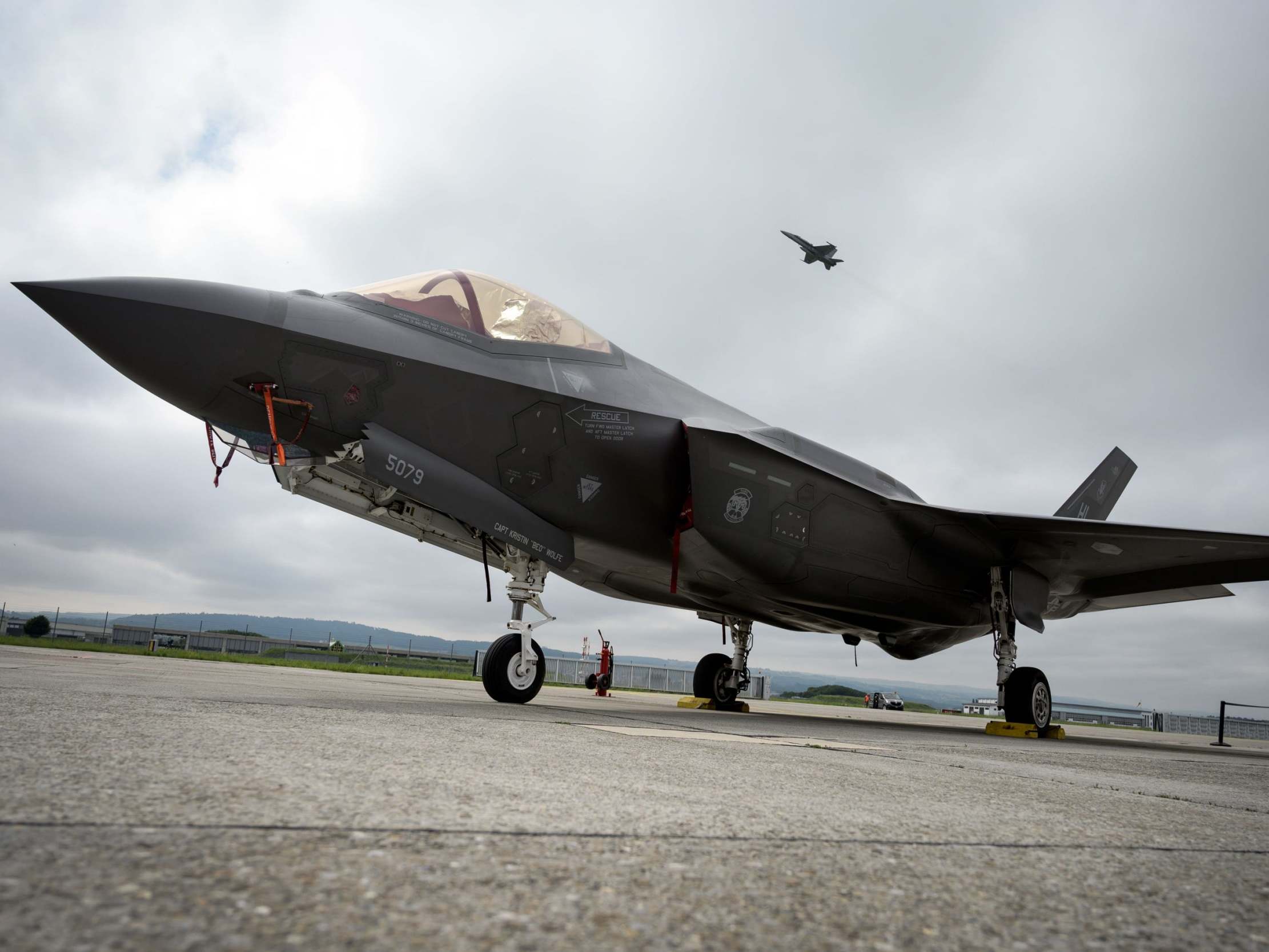Cancel Russian defence system order or lose out on F-35 jets, US warns Turkey
Defence Department says Russian system is considered a threat to its fighter jets

Your support helps us to tell the story
From reproductive rights to climate change to Big Tech, The Independent is on the ground when the story is developing. Whether it's investigating the financials of Elon Musk's pro-Trump PAC or producing our latest documentary, 'The A Word', which shines a light on the American women fighting for reproductive rights, we know how important it is to parse out the facts from the messaging.
At such a critical moment in US history, we need reporters on the ground. Your donation allows us to keep sending journalists to speak to both sides of the story.
The Independent is trusted by Americans across the entire political spectrum. And unlike many other quality news outlets, we choose not to lock Americans out of our reporting and analysis with paywalls. We believe quality journalism should be available to everyone, paid for by those who can afford it.
Your support makes all the difference.The United States has told Turkey that it will not receive its purchase of F-35 fighter jets if the Turkish government goes ahead with a deal to buy a Russian missile defence system.
The latest escalation in the US-Turkey dispute came as Russian state-owned defence corporation Rostec announced it would begin deliveries of S-400 air defence systems to Turkey in two months, following a long-running conflict between the US and Turkey about the system's compatibility with the F-35.
The US has warned that the S-400 is considered a threat to the F-35, due to concerns that the Russian system could learn weaknesses in the stealth fighter jets.
In a letter to Hulusi Akar, the Turkish defence minister, acting US defence secretary Patrick Shanahan wrote: "Turkey's procurement of the S-400 will hinder your nation's ability to enhance or maintain cooperation with the United States and within NATO."
Mr Shanahan said the training of Turkish pilots for the F-35 will end on 31 July and Turkey will be phased out from the F-35 programme, in which it has manufactured essential parts for the fighter jets.
He also warned that the end of the country’s participation in the F-35 programme could be followed by other actions, noting that members of Congress have shown support for imposing sanctions on Turkey over the deal.
The Defence Department has suggested Ankara should purchase the US Patriot air defence system as an alternative to the S-400.
“None of the steps we are taking are irreversible,” Ellen M Lord, a Defence Department official, insisted at a press briefing on Friday.
“If Turkey chooses to forgo delivery of the S-400, we look forward to restoring normal programme activity.”
However, Ankara has shown little sign that it is prepared to cancel its deal with Russia, despite repeated requests by the US to terminate the S-400 purchase.
In March, Katie Wheelbarger, a Defence Department official, said: “The S-400 is a computer. The F-35 is a computer. You don’t hook your computer to your adversary’s computer and that’s basically what we would be doing.”
When asked about the effect of the deal on Turkey’s relationship with NATO, Andrew Winternitz, a Defence Department official, told reporters that the department hoped the conflict was an “aberration”.
He added that Turkey was a "close NATO ally" and argued the US military relationship with Ankara was strong.
Ms Lord also noted yesterday that if Turkey accepts the delivery of the S-400 before 31 July, the “wind-down” of the country’s involvement in the programme could be accelerated.
She added that the US was already looking for other contractors to produce more than 900 parts for the aircraft that are currently produced by Turkish companies.
Turkey’s deal with Russia for the S-400 system is reportedly worth $2.5bn (£1.96bn) and Ankara has previously rejected US offers to sell them the Patriot alternative in 2013 and 2017.
If Turkey does receive the Russian defence system this summer, it is expected to be ready for use by 2020.
Join our commenting forum
Join thought-provoking conversations, follow other Independent readers and see their replies
Comments